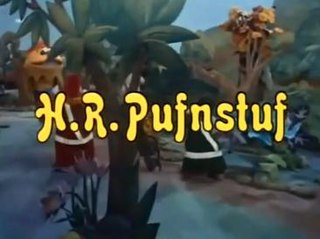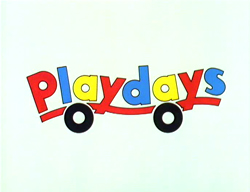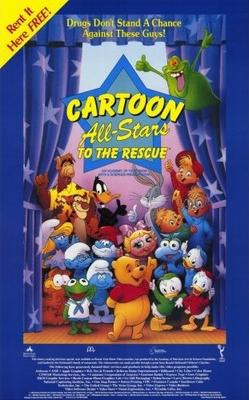
Married... with Children is an American sitcom created by Michael G. Moye and Ron Leavitt for the Fox Broadcasting Company, broadcast from April 5, 1987, to June 9, 1997. It is the longest-running live-action sitcom ever aired on Fox. Married... with Children was the first primetime series broadcast on the new Fox network. The series' run ended with the episode broadcast on May 5, 1997. Two previously unaired episodes were broadcast on June 9, 1997, and June 18, 2002.

Captain Kangaroo is an American children's television series that aired weekday mornings on the American television network CBS for 29 years, from 1955 to 1984, making it the longest-running nationally broadcast children's television program of its day. In 1986, the American Program Service integrated some newly produced segments into reruns of past episodes, distributing the newer version of the series to PBS and independent public stations until 1993.

Beverly Hills, 90210 is an American teen drama television series created by Darren Star and produced by Aaron Spelling under his production company Spelling Television. The series ran for ten seasons on Fox from October 4, 1990, to May 17, 2000, and is the first of six television series in the Beverly Hills, 90210 franchise. The series follows the lives of a group of friends living in Beverly Hills, California, as they transition from high school to college and into the adult world. "90210" refers to one of the city's five ZIP codes.

H.R. Pufnstuf is an American children's television series created by Sid and Marty Krofft. It was the first independent live-action, life-sized-puppet program, following on from their work with Hanna-Barbera's program The Banana Splits Adventure Hour. The seventeen episodes were originally broadcast Saturday from September 6, 1969, to December 27, 1969. The broadcasts were successful enough that NBC kept it on the schedule as reruns until September 4, 1971. The show was shot at Paramount Studios and its opening was shot at Big Bear Lake, California. Reruns of the show returned on ABC Saturday morning from September 2, 1972, to September 8, 1973, and on Sunday mornings in some markets from September 16, 1973, to September 8, 1974. It was syndicated by itself from September 1974 to June 1978 and in a package with six other Krofft series under the banner Krofft Superstars from 1978 to 1985. Reruns of the show were featured on TV Land in 1999 as part of its Super Retrovision Saturdaze Saturday morning-related overnight prime programming block and in the summer of 2004 as part of its TV Land Kitschen weekend late-night prime programming block, and it was later shown on MeTV from 2014 until 2016.

Barney & Friends is an American children's television series targeted at children aged 2–5, created by Sheryl Leach. The series first aired on PBS on April 6, 1992, and features Barney, a purple anthropomorphic Tyrannosaurus rex who conveys educational messages through songs and small dance routines with a friendly, huggable and optimistic attitude. The series ended on November 2, 2010, although new videos were still released on various dates after the last episode aired. Reruns aired on Sprout from 2005 to 2015, and from December 17, 2018 to January 25, 2020 on Sprout's successor network, Universal Kids. On October 6, 2015, the series was initially renewed for revival with a new season to premiere in 2017, but that season was cancelled. A CGI-animated series will air on Cartoon Network's Cartoonito and stream on Max.

Dinosaurs is an American family sitcom television series that aired on ABC from April 26, 1991 to July 20, 1994. The show, about a family of anthropomorphic dinosaurs, was produced by Michael Jacobs Productions and Jim Henson Television in association with Walt Disney Television and distributed by Buena Vista International, Inc. The characters were designed by Henson team member Kirk Thatcher.

Howdy Doody is an American children's television program that was created and produced by Victor F. Campbell and E. Roger Muir. It was broadcast on the NBC television network in the United States from December 27, 1947, until September 24, 1960. It was a pioneer of children's programming and set the pattern for many similar shows. One of the first television series produced at NBC in Rockefeller Center, in Studio 3A, it pioneered color production in 1956 and NBC used the show to promote color television sets in the late 1950s.

Liquid Television was an animation showcase that appeared on MTV from 1991 to 1995. It served as the launching point for several high-profile original cartoons, including Beavis and Butt-Head and Æon Flux. Independent animators and artists created the bulk of Liquid Television's material specifically for the show, and some previously produced segments were compiled from festivals such as Spike and Mike's Festival of Animation.
Pinwheel is an American children's television series that was the first show to air on the then-rebranded Nickelodeon, as well as the first to appear on its Nick Jr. block along reruns until 1990. The show was aimed at preschoolers aged 3–5. It was created by Vivian Horner, an educator who spent her earlier career at the Children's Television Workshop, the company behind PBS's Sesame Street. The show was geared to the "short attention span of preschoolers," with each episode divided into short, self-contained segments including songs, skits, and animations from all over the world.

Playdays was a British preschool television programme which ran from 1988 to 1997 on Children's BBC. The show was the successor to Play School and, like its predecessor, was designed as an educational programme.

Cartoon All-Stars to the Rescue is a 1990 American animated television film starring many characters from several animated television series at the time of its release. Financed by McDonald's, Ronald McDonald Children's Charities, it was originally simulcast for a limited time on April 21, 1990, on all four major American television networks : ABC, CBS, NBC, and Fox, and most independent stations, as well as various cable networks. McDonald's released a VHS home video edition of the special distributed by Buena Vista Home Video, which opened with an introduction from President George H. W. Bush, First Lady Barbara Bush and their dog, Millie. It was produced by the Academy of Television Arts & Sciences Foundation and Southern Star Productions, and was animated overseas by Wang Film Productions. The musical number "Wonderful Ways to Say No" was written by Academy Award-winning composer, Alan Menken and lyricist Howard Ashman, who also wrote the songs for Walt Disney Animation Studios' The Little Mermaid, Beauty and the Beast, and Aladdin.

Oobi is an American children's television series produced by Little Airplane Productions for the Noggin channel. The show's concept is based on a training method used by puppeteers, in which they use their hands and a pair of glass eyes instead of a full puppet. The main character is a bare hand puppet named Oobi. The first season was a series of two-minute shorts. For its second season long-form series, with episodes lasting 13 minutes each. The show originally aired from 2000 to February 11, 2005, with reruns continuing until March 18, 2013.

Rainbow is a British children's television series, created by Pamela Lonsdale, which ran from 16 October 1972 until 6 March 1992, made by Thames Television. The series was revived by Tetra Films from 10 January 1994 until 24 March 1997, in two different formats from the original Thames series, with differing cast members.
Dance Party USA is an American dance television show that aired daily on cable's USA Network from April 12, 1986, to June 27, 1992. It was originally a half-hour, but was expanded to an hour in 1987.

Romper Room is an American children's television series that was franchised and syndicated from 1953 to 1994. The program targeted preschoolers, and was created and produced by Bert Claster and his presenter wife, Nancy, of Claster Television. The national version was presented by Nancy Terrell and filmed in Baltimore from its inception in 1953. Romper Room was also franchised internationally at various times in Canada, the United Kingdom, Japan, Finland, New Zealand, Puerto Rico, Paraguay, Argentina, and Australia.

Cousin Skeeter is an American children's sitcom, that originally aired on Nickelodeon from 1998 to 2001. It starred Robert Ri'chard as Bobby, a young boy whose life is changed when his strange cousin, Skeeter, comes to stay with his family. With Skeeter's help, Bobby learns life lessons and tackles the ups and downs of growing up. The show also included Meagan Good as Bobby's friend Nina, Rondell Sheridan as Bobby's father Andre, and Angela Means as Bobby's mother Vanessa. Skeeter is portrayed by a hand puppet with Bill Bellamy providing his voice, and Drew Massey performing the puppetry, assisted by Alice Dinnean. Within the show, Skeeter is treated like a regular human and no mention of him being a puppet is made. Although the series was shot in a single-camera format, the show used a laugh track.

King Koopa's Kool Kartoons is a local, American live-action children's television show broadcast in Southern California during the Autumn of 1989. The show was produced by DIC Entertainment in association with Fox Television Studios for the Fox television station KTTV - 11 Los Angeles by Gerry Pass – who developed and rolled out the Fox Kids Club – and DIC Animation City, in association with Nintendo. It was a live-action spin-off to The Super Mario Bros. Super Show!, a popular animated show based on the Super Mario video games. The show was discontinued after 65 episodes.

The Good Night Show is a defunct television programming block for preschoolers that aired on the Sprout channel. It was designed to help preschoolers get ready for bedtime. The block featured recurring themes based on preschoolers' nightly routines, such as dreams, brushing teeth, and cleaning up before bed.

The Upside Down Show is a children's television series produced by Blink Films and Sesame Workshop. It was made for Noggin, a channel co-founded by Sesame Workshop. The series is set in a strange apartment building where the doors lead to a variety of unusual rooms. It is presented by brothers David and Shane, who live in the apartment building with their sidekick Puppet, their neighbor Mrs. Foil, and a group of fuzzy creatures called the Schmuzzies. In each episode, David gives the viewers an imaginary remote control that affects the characters and their surroundings.

Sunny Side Up is a defunct television programming block which premiered on Sprout on September 26, 2007 and ended on August 11, 2017. Each week, a new theme was introduced, including food, Halloween, animals, construction, fall, opposites, and birthdays. Sunny Side Up aired at 9:00 a.m. Eastern/8:00 a.m. Central until 12:00 p.m. Eastern/11:00 a.m. Central each weekday morning. The hosts of Sunny Side Up played games, sang songs, told stories, and showed birthday cards or artwork.

















